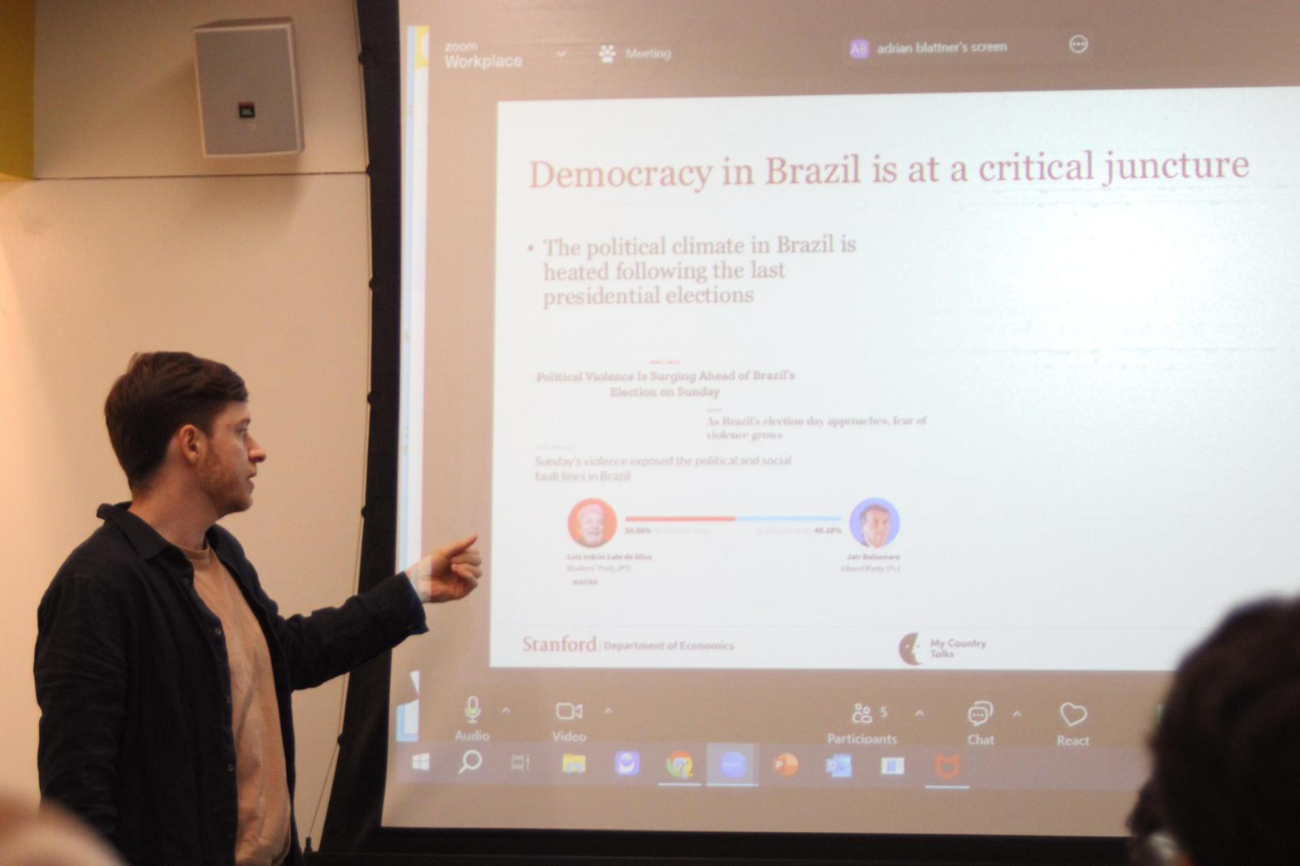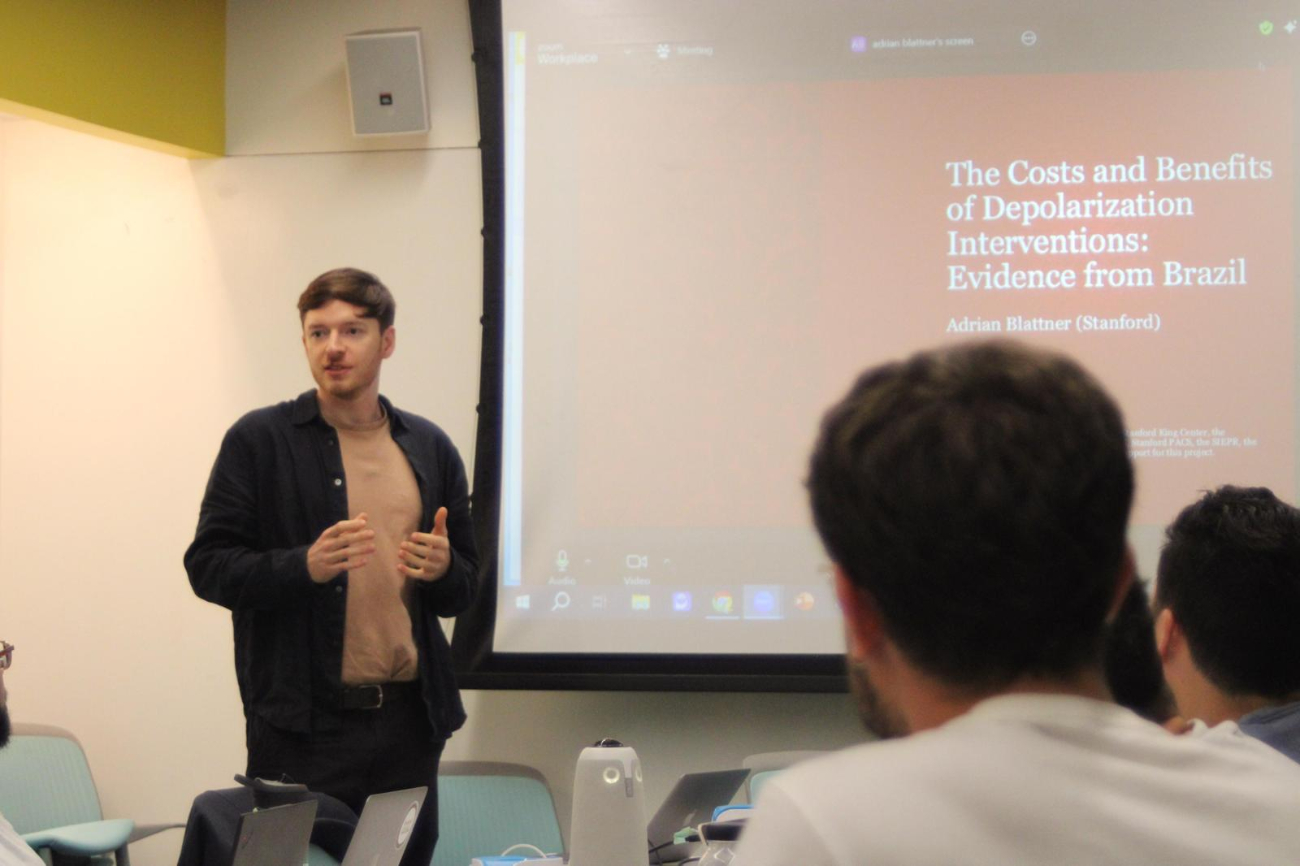
The Costs and Benefits of Depolarization Interventions: Evidence from Brazil
Date:
Tuesday, October 15, 2024 - 9:00am to 10:15am
Quarter:
Fall 2024
Location:
CERAS 107
The political landscape of Brazil is deeply divided. This has sparked a debate among scholars and policymakers about what types of interventions could be leveraged to reduce polarization. In this project, we partner with several NGOs and Brazilian news outlets to address the following research questions: First, what is the effect of interventions promoting interactions between opposing partisans? Second, what are the factors limiting partisans’ interest in interactions with opposing partisans? Third, what interventions can increase partisans’ willingness to participate? Finally, how can the impact of depolarization interventions be scaled to the broader public?
Recommended Readings:
- Estadão: https://www.estadao.com.br/politica/o-brasil-fala-chega-ao-pais-em-meio-a-forte-divisao-politica-e-eleicoes-municipais/
- Folha de S. Paulo: https://www1.folha.uol.com.br/colunas/papo-de-responsa/2024/08/brasil-precisa-dialogar-para-superar-polarizacao.shtml
- Gazeta do Povo: https://www.gazetadopovo.com.br/vida-e-cidadania/o-brasil-fala-brasileiros-pensam-diferente-conversar/
- Carta Capital: https://www.cartacapital.com.br/sociedade/o-brasil-fala-projeto-quer-facilitar-o-dialogo-entre-cidadaos-que-pensam-diferente/
About Adrian Blattner:
Adrian Blattner is a PhD candidate in Economics at Stanford. Adrian’s research incorporates experimental and econometric methods to study political polarization, gender inequality, and discrimination in labor markets. He is a Stanford Knight-Hennessy Scholar and recipient of the ERP Fellowship by the German Ministry of Economic Affairs.



